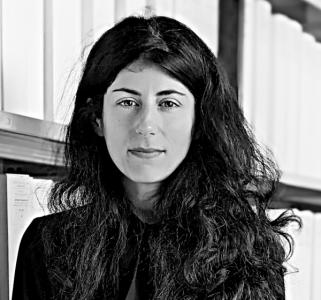Elisa Bassetto
Dr. Elisa Bassetto
Fondazione centro studi sull'arte Licia e Carlo Ludovico Ragghianti (Mai - Juli 2023)
postdoc projekt: «Roma come Parigi». La contestazione giovanile e le istituzioni artistiche, tra aspirazioni libertarie e vocazione anti-sistema
Forschungsschwerpunkte


«Roma come Parigi». La contestazione giovanile e le istituzioni artistiche, tra aspirazioni libertarie e vocazione anti-sistema
Her research aims to analyse, according to an interdisciplinary approach which combines art history, history of culture and comparative history, the impact of the protests of the student movement on the Italian and French artistic institutions. The objective is to demonstrate the strong link between some of the outcomes of the “joli mai” in France and the events that took place in Italy in 1968 and involved the Galleria Nazionale d’Arte Moderna di Roma and the main Italian art exhibitions, such as the Venice Biennale and the Triennale di Milano.
The research project also aims to point out some common traits and differences between f the position taken by the student movement and the ideas expressed by some of the greatest protagonists of art history and criticism since after the Second World War, such as Giulio Carlo Argan, Emilio Vedova, Pierre Restany, Michel Ragon, Pier Paolo Pasolini, Carla Lonzi, giving particular attention to the experience of the Parisian Atelier populaire ex-école des Beaux-Arts.
Zur Person


Werdegang


Elisa Bassetto studied art history at the Università degli Studi di Pisa and she gained her PhD in Global histories, cultures and politics at the Università degli Studi di Bologna. She completed an internship at the Scuola Normale Superiore di Pisa and from November 2019 to March 2020 she was chercheuse acueillie at the Institut National d’Histoire de l’Art, joining the project 1959 1985, au prisme de la Biennale de Paris, under the supervision of Prof. Dr. Elitza Dulguerova. As a research assistant she worked at the Scuola IMT Alti Studi di Lucca and from October 2022 to Aprile 2023 she was research fellow at the Fondazione centro studi sull’arte Licia e Carlo Ludovico Ragghianti di Lucca. Her research focus is on history of cultural institutions, history of exhibitions and art criticism. She is also a member of the Editorial Board of «Predella. Journal of Visual Arts».
From Mai to July 2023, she will be conducting research in Paris as a Paris x Rome fellow.
Kontakt




